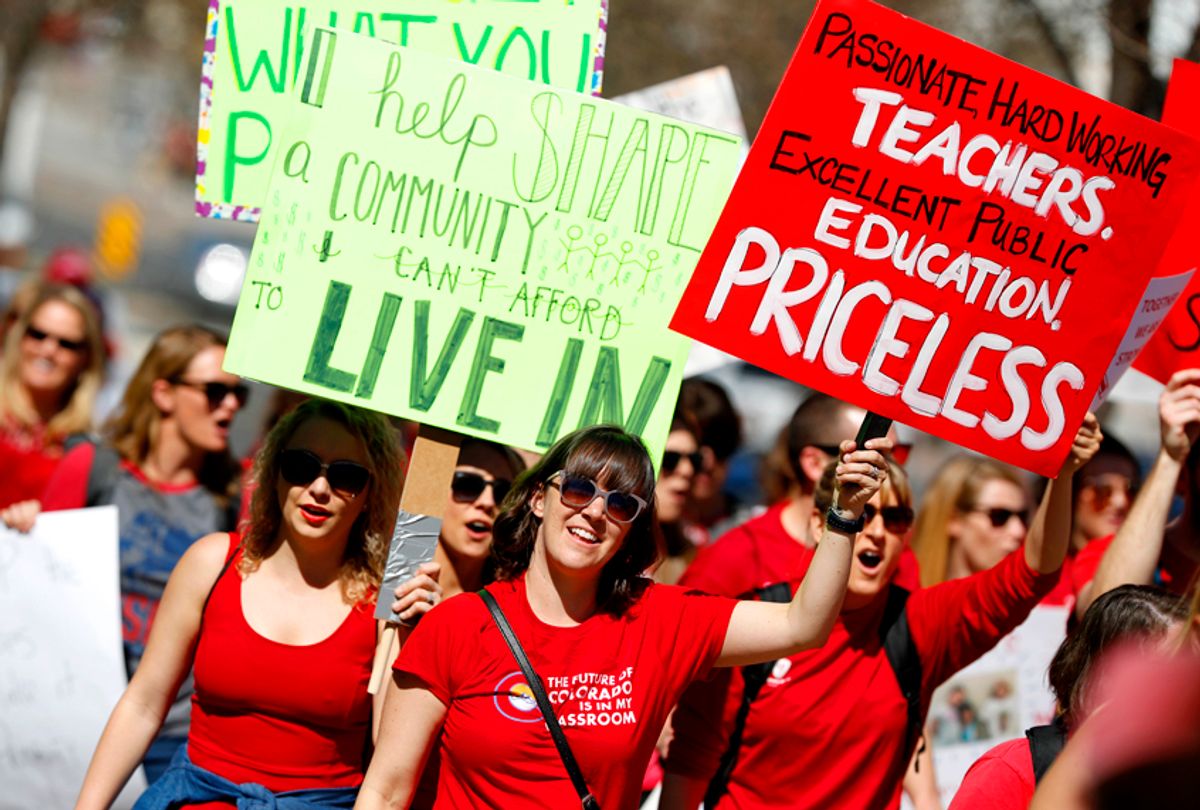If there’s anything that’s come out of the Trump era, it’s a galvanization of activism across the country, renewed by enthusiasm, from the Women’s March to the fight of teachers for fair pay. People are standing up for their beliefs and rights like we haven’t seen in decades. And it is affecting ballots this midterm season.
The latest example is the GOP runoff election held Aug. 28 in Oklahoma. The fight of state teachers there, who fought against Gov. Mary Fallin and the state’s legislators who slashed education budgets by 23.6 percent between 2008 and 2015, reached a satisfying new stage when the teachers’ fight turned into might at the ballot box, according to a New York Magazine article.
Teachers had already won a small salary increase by going on strike, pushing the governor to pass a small increase in a fracking production tax—the smallest in the nation. But it proved the teachers could possibly win against the heavyweights, the energy billionaires, and they promised to take the rest of their fight for better educational resources all the way to the election.
They won, big time, last week after largely cleaning house in the first primary. Out of the 19 Republicans who voted against raising taxes to fund the teacher pay increases, only four survived the primaries and will be on the ballots in November.
Oklahoma isn’t the only state seeing this kind of a movement. It follows West Virginia, where Republican state Sen. Robert Karnes lost re-election after opposing his state’s teacher strike for wage increases. He was defeated in the May primaries by state Del. Bill Hamilton.
The same thing happened in the Kentucky primary in May. Teacher Travis Brenda defeated Republican House Majority Leader Jonathan Shell in the GOP primary because Shell, one of Mitch McConnell’s protégés, led a push to cut teachers’ pensions.
Now Gov. Scott Walker of Wisconsin is fighting for his political life against the superintendent of schools for the state, Tony Evers, the Democratic challenger. Walker is trying to rebrand himself as the “pro-education” candidate. Nobody seems fooled, though. A recent Suffolk University poll showed Walker trailing 2 points behind Evers.
However, it’s not just education activism that’s giving people hope. We’ve seen activism on many issues gear up since Trump’s inauguration, and that’s translating into voter enthusiasm.
Fox News just released a new poll asking among other questions, how interested people are in the upcoming November elections. The high total came in at a median 47 percent who said they were extremely interested. The news service has asked that question 28 times over the past three midterm elections, but this result, with calls conducted Aug. 19- 21 among a random national sample of more than 1,000 registered voters, was the highest.
READ MORE: The Year of the Woman in electoral politics? Maybe so — but not for Republicans
Across all demographics, veterans showed the most enthusiasm at 53 percent, though when asked how that compared with previous congressional elections, a majority said its interest registered at a similar level. The under-45 age bracket showed the lowest interest, unsurprisingly, at 41 percent, yet this was the only demographic among nine where the majority showed an increase in interest over previous mid-term elections.
Of the total, 65 percent said they were certain to vote in the midterms. The group that said it is certain to vote in the upcoming election by the largest percentage was Clinton voters, at 76 percent. That compares with Trump voters, at 67 percent. And as most polls are showing, when asked if the election were held today, 49 percent of respondents said they would vote Democratic, compared with 38 percent who said they would vote Republican.




Shares